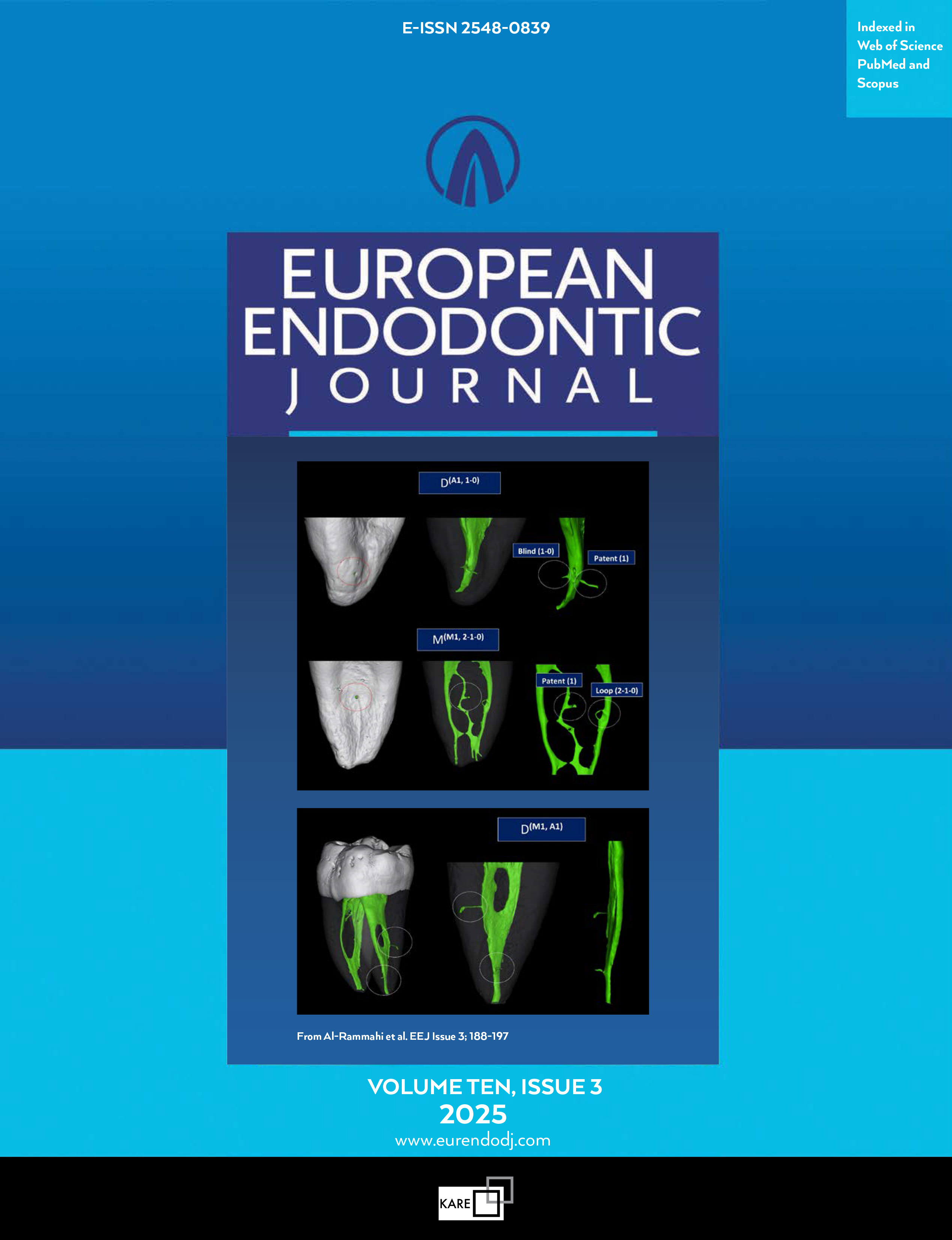Metrics
2024 IMPACT FACTOR
5 year Impact Factor
Eigenfactor Score
2024 CiteScore
Journal Citation Reports
(Clarivate 2025, JIF Rank)
Endodontic Applications of Propolis in Primary and Permanent Teeth: A Scoping Review of Clinical Studies
Hayat Alghutaimel1, Manal Matoug-Elwerfelli2, Venkateshbabu Nagendrababu3, Paul Michael Howell Dummer41College of Dentistry, King Saud bin Abdulaziz University for Health Sciences, Riyadh, Saudi Arabia; King Abdullah International Medical Research Centre, Riyadh, Saudi Arabia; Ministry of the National Guard - Health Affairs, Riyadh, Saudi Arabia2Department of Pre-clinical Oral Sciences, College of Dental Medicine, QU Health, Qatar University, Doha, Qatar
3Department of Preventive and Restorative Dentistry, University of Sharjah, College of Dental Medicine, Sharjah, United Arab Emirates
4School of Dentistry, College of Biomedical and Life Sciences, Cardiff University, Cardiff, UK
The use of propolis-based materials within endodontics to promote pulp wound healing or disinfect the root canal system has been a recent focus of scientists and clinicians. This is mainly because of the well-documented antimicrobial, anti-inflammatory, immunomodulatory and wound healing properties of propolis. This scoping re-view critically appraises the literature on the clinical applications of propolis-based compounds during endodon-tic therapy of primary and permanent teeth. An electronic literature search was performed in Scopus, PubMed, and Web of Science up to and including October 2023 to identify studies assessing the use of propolis during en-dodontic therapy of primary and permanent teeth. A combination of relevant Medical Subject Headings (MeSH) terms and keywords was used. Only human clinical studies written in English were included. The identified manuscripts were screened and assessed for inclusion by two independent authors. Eligible manuscripts were then subjected to critical appraisal and data extraction with the information being summarised according to their clinical application. A total of 26 human clinical studies were identified and included in the analysis. Propolis was investigated for use in the primary and permanent dentitions as a direct pulp capping or pulpotomy material as well as in root canal disinfection and root canal filling material of teeth with non-vital pulps. Overall, the included studies reported that the use of propolis was associated with promising outcomes in terms of efficacy to control inflammation, enhance tissue repair, and disinfection of the root canal system. However, a critical appraisal of the studies revealed a range of methodological and reporting deficiencies, resulting in unreliable results and con-clusions in terms of the clinical outcomes reported. Although the studies on the use of propolis-based materials in endodontics reported promising clinical outcomes, they had a range of methodological and reporting flaws. Therefore, further well-designed and properly reported controlled clinical studies are essential to derive sound evidence-based conclusions on propolis-based materials. Furthermore, guidelines for quality assurance and safe use of propolis-based materials are necessary to enhance their production for commercial use in endodontics.
Keywords: Bee wax, dental pulp, endodontic, flavonoids, propolis, root canalManuscript Language: English
(807 downloaded)


